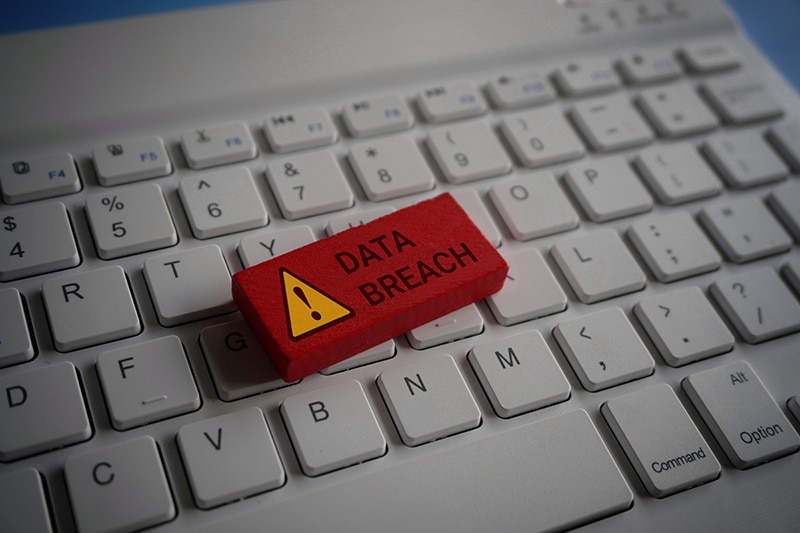Healthcare data security is constantly at risk of being compromised. Medical data breaches significantly impact individuals by exposing their personal, medical, and financial information, potentially leading to identity theft, financial losses, and psychological distress. For healthcare providers, compromised patient data security can lead to significant financial consequences—including hefty HIPAA fines, compliance-related expenses, reputational damage, and a loss of patient trust.
Healthcare organizations that outsource medical document scanning or data entry services must exercise extra caution. Partnering with vendors that lack strong security measures can put electronic health records (EHRs) at risk. To safeguard sensitive data, it’s critical to work with HIPAA-compliant providers that implement data encryption, strict access controls, and routine security audits.
This post highlights the latest cybersecurity statistics in healthcare and shares best practices to guard against hackers and strengthen patient data security.
Medical Data Breaches: Disturbing Trends
In any industry, maintaining data integrity and security is critical to success. Unfortunately, recent reports indicate that the healthcare sector continues to grapple with cybersecurity risks.
In the first half of 2024, over 168 million individuals were affected by healthcare data breaches reported to the Office for Civil Rights (OCR) of the Department of Health and Human Services. This number is likely to rise slightly as OCR continues to receive and post 2024 data breach reports, according to a TechTarget article. Specifically, the 10 largest breaches in 2024 alone affected 137 million individuals.
According to the JAMA Network Open, there were 566 medical data breaches in the US in 2024, affecting 170 million patient records. This is a significant increase from 216 breaches in 2010 and a total of 112.4 million records exposed in 2015, the highest number to date. UpGuard reported that the number of healthcare data security breaches involving 500 or more medical records has also increased, with an average of 2 reports per day in 2022, almost twice the number in 2018.
Importance of Securing Health Records against Hackers
Medical data includes highly sensitive information such as Social Security numbers, birth dates, contact details, driver’s license numbers, test results, diagnoses, and more. When identities are stolen—either to sell personal data or fraudulently access healthcare—it can result in dangerously mixed-up patient records. In some cases, hackers even threaten to release stolen patient data online unless a ransom is paid.
Cyberattacks not only disrupt healthcare operations but can also result in hefty HIPAA fines and long-term damage to a provider’s reputation. Robust cybersecurity measures are essential to safeguarding patient data and ensuring regulatory compliance.
Best Practices for Medical Data Protection
Healthcare organizations must take a proactive approach to protecting this sensitive patient, financial, and operational information. This involves a smart combination of advanced technology, strong physical security measures, and ongoing employee training.
Security professionals who understand the risks and vulnerabilities within healthcare systems play a critical role in preventing breaches. Their expertise helps strengthen defenses and ensures that patient and consumer data remains secure.
Here are 3 essential tips to prevent patient data security breaches in healthcare organizations:
- Empower Patients to Protect Their Own Data
- Encourage record monitoring: Urge patients to regularly check their medical records and explanation of benefits (EOB) statements. Inaccuracies may indicate data mix-ups or unauthorized access.
- Promote annual summaries: Recommend that patients request a health record summary from their providers at least once a year to stay updated.
- Caution against oversharing: Educate patients about PHI protection. Highlight that they must share only necessary personal information. Legitimate healthcare providers won’t ask for unnecessary details like Social Security numbers.
- Suggest credit monitoring: Advise patients to review their credit reports for discrepancies, which could signal that their medical data has been compromised.
- Encourage prompt reporting: If patients notice suspicious activity, they should immediately report it to their provider or insurer. Offer them simple, user-friendly channels to do so.
- Use Advanced Technology for Data Protection
- Implement secure platforms: Invest in encrypted enterprise platforms with 256-bit AES encryption and flag potential network threats. Data encryption ensures that any data transmitted over the network remains unreadable to unauthorized users. Firewalls and Intrusion Detection Systems (IDS) act as the first line of defense by monitoring and filtering incoming and outgoing traffic.
- Implement access controls: Restrict access to sensitive areas and digital records using biometric tools like fingerprint, voice, or retinal recognition. Access controls limits access to systems based on user roles, ensuring only authorized personnel can view or edit patient data.
- Regular updates and patch management: Prevents exploitation of system vulnerabilities by keeping software and hardware secure.
- Backups: Partnering with data entry or document management companies can also ensure back up of patient records, reducing vulnerability to health information security breaches.
For network security in hospitals and medical practices:
- Establish a Proactive Security Framework
- Train staff and create a breach response plan: Develop a clear, tested incident response strategy and ensure all employees understand their role in case of a security threat.
- Perform regular risk assessments: Continuously monitor your network, assess risks, and receive alerts on unusual data exchanges to stay ahead of threats.
- Combine technology and human vigilance: Use a layered approach that integrates tools, training, and proactive measures to mitigate breaches and avoid compliance violations.
The Importance of HIPAA-Compliant Outsourcing Services
When hospitals and healthcare organizations outsource functions like medical billing, coding, transcription, or data entry, they are also extending access to sensitive patient health information. This makes HIPAA compliance non-negotiable for any outsourcing partner.
A HIPAA-compliant outsourcing service will have the following arrangements in place for patient data security:
- PHI is handled, transmitted, and stored securely.
- Administrative, physical, and technical safeguards are in place to prevent unauthorized access.
- Staff are trained in HIPAA privacy and security rules, reducing the risk of human error.
- The provider regularly undergoes audits and risk assessments to maintain compliance.
Working with a HIPAA-compliant partner not only minimizes the risk of data breaches and legal penalties but also builds trust with patients by demonstrating a strong commitment to data privacy in healthcare.
Outsource to trusted providers who prioritize data security and compliance.




